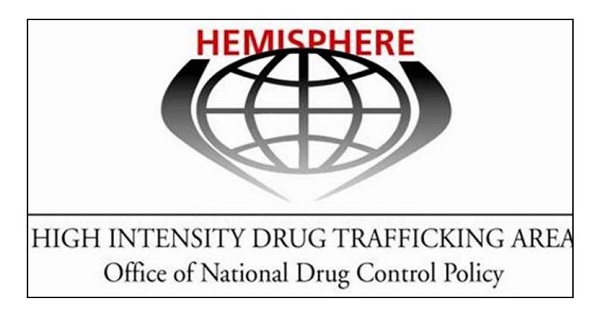Wyden asks US to release documents about Hemisphere phone surveillance program
6 min read
U.S. Sen. Ron Wyden called on Attorney General Merrick Garland to make public documents related to the Hemisphere phone surveillance program, which allows federal, state, local and tribal law enforcement agencies to request searches of trillions of U.S. phone records, usually without warrants.
Although the documents are not classified, the Justice Department has marked them as “Law Enforcement Sensitive,” which is meant to prevent them from being publicly released. In a letter to Garland sent today, Wyden urged the department to remove those restrictions.
“I have serious concerns about the legality of this surveillance program, and the materials provided by the DOJ contain troubling information that would justifiably outrage many Americans and other members of Congress,” Wyden wrote. “While I have long defended the government’s need to protect classified sources and methods, this surveillance program is not classified and its existence has already been acknowledged by the DOJ in federal court. The public interest in an informed debate about government surveillance far outweighs the need to keep this information secret.”
Under the Hemisphere program, the White House Office of National Drug Control Policy (ONDCP) indirectly pays AT&T to allow any federal, state, local or Tribal law enforcement agency to search AT&T customers’ phone records as far back as 1987, according to public records about the program.
Hemisphere has not been subjected to a federal Privacy Impact Assessment because of its unique funding structure. Rather than directly funding the surveillance program, the ONDCP provides a grant to the Houston High Intensity Drug Trafficking Area, a partnership between federal, state and local law enforcement agencies, which in turn pays AT&T to operate this surveillance program. Law enforcement agencies nationwide are able to request Hemisphere searches, including for investigations that are not drug-related, Houston HIDTA officials told Wyden’s office.
The bipartisan Government Surveillance Reform Act would require a court order for surveillance of Americans’ phone records, the same standard currently required for the government to obtain historical email and instant message metadata records.
The complete letter from Sen. Wyden to Attorney General Garland follows:
The Honorable Merrick B. Garland Attorney General
U.S. Department of Justice
950 Pennsylvania Avenue, NW Washington, DC 20530-0001
Dear Attorney General Garland:
I write to request that you clear for public release additional information about the Hemisphere Project. This is a long-running dragnet surveillance program in which the White House pays AT&T to provide all federal, state, local, and Tribal law enforcement agencies the ability to request often-warrantless searches of trillions of domestic phone records.
In 2013, the New York Times revealed the existence of a surveillance program in which the White House Office of National Drug Control Policy (ONDCP) pays AT&T to mine its customers’ records for the benefit of federal, state, local, and Tribal law enforcement agencies. According to an ONDCP slide deck, AT&T has kept and queries as part of the Hemisphere Project call records going back to 1987, with 4 billion new records being added every day. That slide deck was apparently disclosed by a local law enforcement agency in response to a public information request and was published by the New York Times in 2013.
The scale of the data available to and routinely searched for the benefit of law enforcement under the Hemisphere Project is stunning in its scope. One law enforcement official described the Hemisphere Project as “AT&T’s Super Search Engine” and … “Google on Steroids,” according to emails released by the Drug Enforcement Administration (DEA) under the Freedom of Information Act. The ONDCP slide deck and an email released by the DEA also reveal that AT&T searches records kept by its wholesale division, which carries communications on behalf of other communications companies and their customers. Another slide deck released by ONDCP and published by the press in 2014 describes the specific capabilities of Hemisphere, including that it can be used to identify alternate numbers used by a target, obtain location data and “two levels of call detail records for one target number” (meaning the phone records of everyone who communicated with the target).
The Hemisphere Project has been supported by regular funding from the White House ONDCP since 2009, according to the attached undated white paper that ONDCP provided to my office on October 27, 2022 (Appendix A). That same document reveals that White House funding for this program was suspended by the Obama Administration in 2013, the same year the program was exposed by the press, but continued with other federal funding under a new generic sounding program name, “Data Analytical Services.” ONDCP funding for this surveillance program was quietly resumed by the Trump Administration in 2017, paused again in 2021, the first year of the Biden Administration, and then quietly restarted again in 2022.
Although the Hemisphere Project is paid for with federal funds, they are delivered to AT&T through an obscure grant program, enabling the program to skip an otherwise mandatory federal privacy review. If the funds came directly from a federal agency, such as the DEA, Hemisphere would have been subjected to a mandatory Privacy Impact Assessment conducted by the Department of Justice (DOJ) Office of Privacy and Civil Liberties, the findings of which would be made public. Instead, ONDCP provides funding for the program through the Houston High Intensity Drug Trafficking Area (HIDTA), one of 33 regional funding organizations as a part of a grant program created by Congress and administered by ONDCP. The HIDTAs distribute federal anti-drug law enforcement grants to state and local agencies, and are governed by a board made up entirely of federal, state and local law enforcement officials.
ONDCP provided my staff with an undated white paper describing the program and its historical funding levels, but ONDCP directed all questions about Hemisphere to the Houston HIDTA. Officials at the Houston HIDTA provided my office with a briefing on November 7, 2022, and spoke again with my staff by phone on December 1, 2022. The Houston HIDTA officials told my staff that all Hemisphere requests are sent to a single AT&T analyst located in Atlanta, Georgia, and that any law enforcement officer working for one of the federal, state, local and Tribal law enforcement agencies in the U.S. can contact the AT&T Hemisphere analyst directly to request they run a query, with varying authorization requirements. The Houston HIDTA officials confirmed that Federal and state law enforcement agencies can request a Hemisphere search with a subpoena, which is a directive that many law enforcement agencies can issue themselves (except in California and Texas, where a court order is required by state law). They also explained that Hemisphere searches are not required to be in support of drug-related investigations.
For the past year, I have urged the DOJ to release dozens of pages of material related to the Hemisphere Project, which it first provided to my office in 2019. This information has been designated “Law Enforcement Sensitive,” which is meant to restrict its public release. I have serious concerns about the legality of this surveillance program, and the materials provided by the DOJ contain troubling information that would justifiably outrage many Americans and other members of Congress. While I have long defended the government’s need to protect classified sources and methods, this surveillance program is not classified and its existence has already been acknowledged by the DOJ in federal court. The public interest in an informed debate about government surveillance far outweighs the need to keep this information secret. To that end, I urge you to promptly clear for public release the material described in Appendix B.
Thank you for your attention to this important matter. If you have any questions about this request, please contact Chris Soghoian in my office.
Sincerely,
Ron Wyden
United States Senator
CC: Dr. Rahul Gupta, Director of National Drug Control Policy.
Jessica Rosenworcel, Chairwoman, Federal Communications Commission.
John Stankey, Chief Executive Officer, AT&T Inc.







